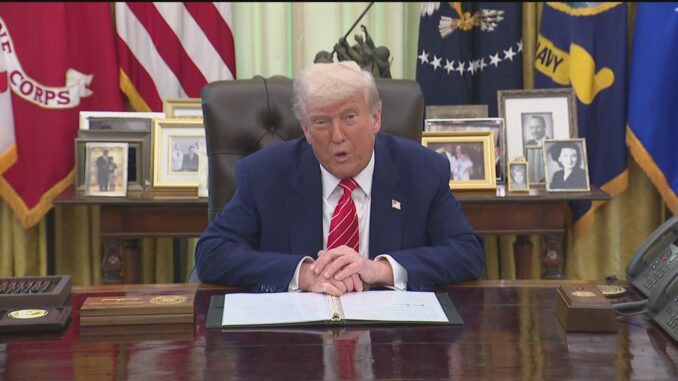
President Donald Trump resurrected a signature first-term policy Wednesday, announcing travel bans for citizens from 12 countries and imposing restrictions on seven others, with the measure taking effect Monday at 12:01 a.m.
The banned countries include Afghanistan, Myanmar, Chad, Republic of Congo, Equatorial Guinea, Eritrea, Haiti, Iran, Libya, Somalia, Sudan, and Yemen. Seven additional nations—Burundi, Cuba, Laos, Sierra Leone, Togo, Turkmenistan, and Venezuela—will face heightened visitor restrictions under the new policy.
Trump linked the ban to Sunday’s terror attack in Boulder, Colorado, emphasizing dangers posed by visa overstays in a social media video. However, the attack suspect hails from Egypt, which remains absent from the restricted list despite Department of Homeland Security confirmation that he overstayed a tourist visa.
The implementation timeline provides a cushion avoiding the chaos that erupted at airports nationwide when similar measures took effect with virtually no notice in 2017. This iteration appears on firmer legal ground following Supreme Court support during Trump’s first term, though some countries from the original ban have been removed while others were added.
The policy resurrects controversies surrounding travel restrictions based on nationality, with critics arguing such broad measures fail to enhance security while damaging America’s global standing. Supporters contend the restrictions address legitimate security concerns about inadequate vetting procedures in affected countries.
The Monday deadline gives travelers, airlines, and immigration officials time to prepare for implementation, potentially preventing the confusion and family separations that marked the 2017 rollout. Legal challenges are expected, though the administration appears confident the Supreme Court precedent will protect the policy from successful constitutional challenges.
